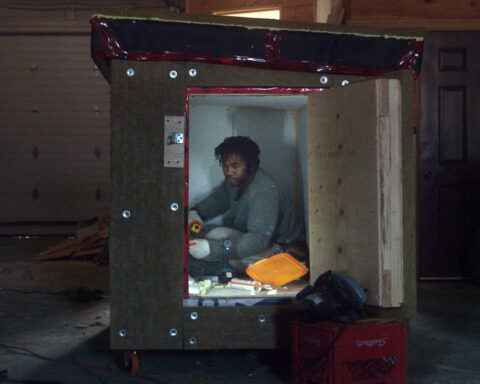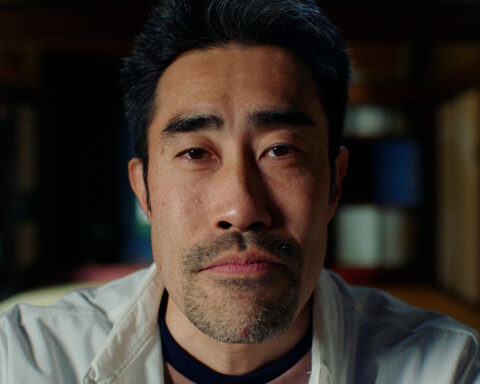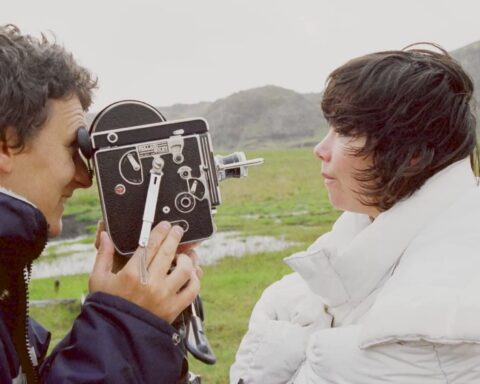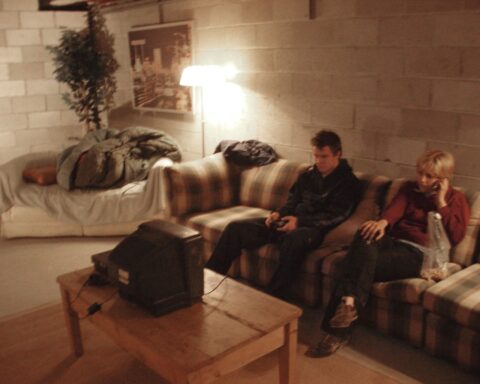Capernaum
(Lebanon, 120 min.)
Dir. Nadine Labaki
Starring: Zain Al Rafeea, Yordanos Shiferaw, Boluwatife Treasure Bankole, Kawthar Al Haddad, Fadi Youssef, Cedra Izam, Alaa Chouchnieh, Nadine Labaki
Programme: Special Presentations (North American Premiere)
I generally abhor films that focus on children, but I tip my hat to Nadine Labaki. Her new film Capernaum is a triumph that walks a razor’s edge between heart-wrenching emotion and sentimentality without tripping. It is a devastating parable about the children who are abandoned by their parents’ outdated value systems. Nearly every frame of Capernaum rests on the shoulders of 12-year-old actor Zain Al Rafee, who gives an astonishingly deep performance as the film’s young protagonist Zain. Performances this rich and dynamic from such young and untrained actors don’t happen by accident. It’s a testament to Labaki’s strength as a director that she guides her young star to captivate the audience so strongly without ever overplaying his hand. It is a rich performance that marvels with its emotional intelligence and restraint.
Zain finds himself in a situation that few children ever would, but many of them might dream about, as Capernaum opens with the young boy taking his parents to court after being jailed for a violent crime. He’s suing them for giving him life. What a damning statement to give one’s parents, especially as one of the sons who will carry on the family bloodline and name.
The premise might sound absurd, but it works. Much in the style of last year’s Lebanese Oscar nominee The Insult, Capernaum cuts between the present-day trial and the events that inspired it. The household in which Zain grows up is akin to a chicken coop with so many kids scurrying about in small quarters. Zain’s mom even keeps her infant tethered on a leash like a dog. The only reprieve from the awfulness of the situation is the bond the children share. Labaki presents moments of touching levity as Zain and his siblings make a game out of earning the family income by serving customers at their makeshift juice stand in the street or selling homemade speed brewed out of prescription drugs Zain gets by stick-handling the local pharmacists.
Zain testifies that he found his world upturned when his parents sold his beloved little sister, Sahar, into marriage the moment she hit puberty. Sarah’s buyer is a lecherous neighbour in his 30s and her price, to him and to her parents, is a few measly chickens, but she’s Zain’s best friend and his invaluable ally. The brother and sister are the heart of the first act, and Labaki powerfully shatters the bond as Zain sees his family ripped apart from within. The scene is absolutely devastating as Zain fiercely fights to save Sahar from being violated by her new husband at such a cruelly young age. The rift inspires Zain to flee from his family and survive on his own.
Zain takes refuge in a local fairground where he meets the caring eye of Rahil (Yordanos Shiferaw) a Sudanese refugee who works there as a member of the cleaning staff. Rahil recognizes Zain’s intelligence and independence, as well as his need for care. A mother herself, Rahil invites Zain into her home at a nearby slum. The pair, along with Rahil’s infant son Yosef (Boluwatife Treasure Bankole), forms a new family built on the respect and compassion Zain sorely lacked in his previous home. Shiferaw and Bankole give natural and heartfelt performances as Zain’s new family members. Labaki’s hand with the infant is especially remarkable as Capernaum boldly lets the drama rest on the shoulders of two actors who are collectively 13-years-old.
An unexpected turn of events leaves Yosef in Zain’s care and the boy must rely on his old instincts in unfamiliar territory. Al Rafeea, a Syrian refugee who works as a delivery boy in real life after struggling to adapt to the Lebanese education system, assumes control of the film with remarkable confidence. There is so much range to this performance, so much heartache, and such a tragic longing for joy as Zain protects Yosef as plays caregiver while navigating an underworld that could earn him some false identity papers and lead to his freedom. Kids as young as Zain deserve more reasons to laugh and smile, and the film gives a sobering depiction of the hardship of living day by day, hand to mouth, without parental guidance. Labaki, who previously won the People’s Choice Award at Toronto for 2011’s Where Do We Go Now? realizes this cruel childhood with sensitivity and compassion.
One can easily be cynical of a film like Capernaum and charge Labaki with exploiting her cast of mostly non-professional actors and young stars, but that would be a grossly unfair oversimplification and misrepresentation of the film’s heart and spirit. Capernaum is hardly the exploitative poverty porn of Hector Babenco’s 1981 hit Pixote, which cast non-actor Fernando Ramos da Silva in a role of art imitating life as a teen criminal navigating Brazil’s criminal underworld. Pixote aspired to a kind of documentary-like realism to glean authenticity and emotional power by thrusting its young lead into unwatchable scenes of drug use, prostitution, and criminality that mirrored his da Silva’s own life, only to later discard him and let the actor die on the streets after returning to a life of crime.
Labaki takes a more respectful approach to Zain’s situation. She doesn’t seek pity or cheap catharsis, but rather uses her adeptness with melodrama and the conceit of the lawsuit to put Lebanon’s class system on trial and the inequalities it perpetuates. Capernaum, like it or not, is rooted in realism as Zain’s court case challenges a patriarchal system of yesteryear when kids were put on this Earth simply as emblems of their parents’ success. The sad reality is that Zain’s parents succeeded in raising such a wise and independent child as he, and the young star’s touching performance reaches out to touch the heart of every viewer, asking them to see every child as a life worthy of attention. Capernaum resonates with the sincerity and empathy the director has for her stars. It’s a small film with a great heart.













